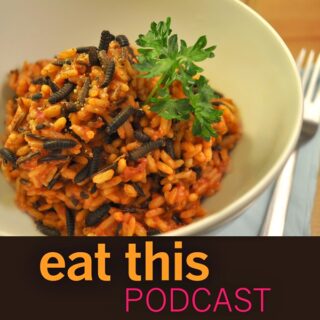Somewhat sad to see Marion Nestle, with whom I almost always agree, linking, without question or comment, to an article in a pet-food trade journal which suggests that insect protein is a key solution to a sustainable pet food industry. The article contains some eye-opening numbers for the pet food business in the US and globally, as well as some dubious claims about pet health; they are not properly sourced, so I’m not going to bother to address them.
I do, however, take issue with this:
“In terms of sustainability, the key point is that this isn’t just greenwashing,” said Hobbs. “Insect protein in pet food truly has a significant positive impact.”
It is just greenwashing.
Hobbs is Aaron Hobbs, executive director of the North American Coalition for Insect Agriculture (NACIA), so Mandy Rice-Davies applies. The key point, which neither he nor Marion Nestle seem to have appreciated, but which you will because you listened to the recent episode on insects as food (for people and their pets), is that the “waste” that insects are reducing is usually a feed product that could be given direct to livestock and, in some cases, people and their pets.
Premium-priced insect-based pet food might assuage the consciences of some pet owners, but it is unlikely to do anything at all for food waste.




 If only we could get over our squeamishness, insects can save the planet, banish hunger, protect the rainforests and reduce the climate catastrophe. At least, that’s what article after article tell us as they sing the praises of feeding our food waste to insects like the larvae of the black soldier fly. Insects can grow 5000-fold in 12 days, producing prodigious quantities of protein in less than 100th the space of soya beans.
If only we could get over our squeamishness, insects can save the planet, banish hunger, protect the rainforests and reduce the climate catastrophe. At least, that’s what article after article tell us as they sing the praises of feeding our food waste to insects like the larvae of the black soldier fly. Insects can grow 5000-fold in 12 days, producing prodigious quantities of protein in less than 100th the space of soya beans. 


